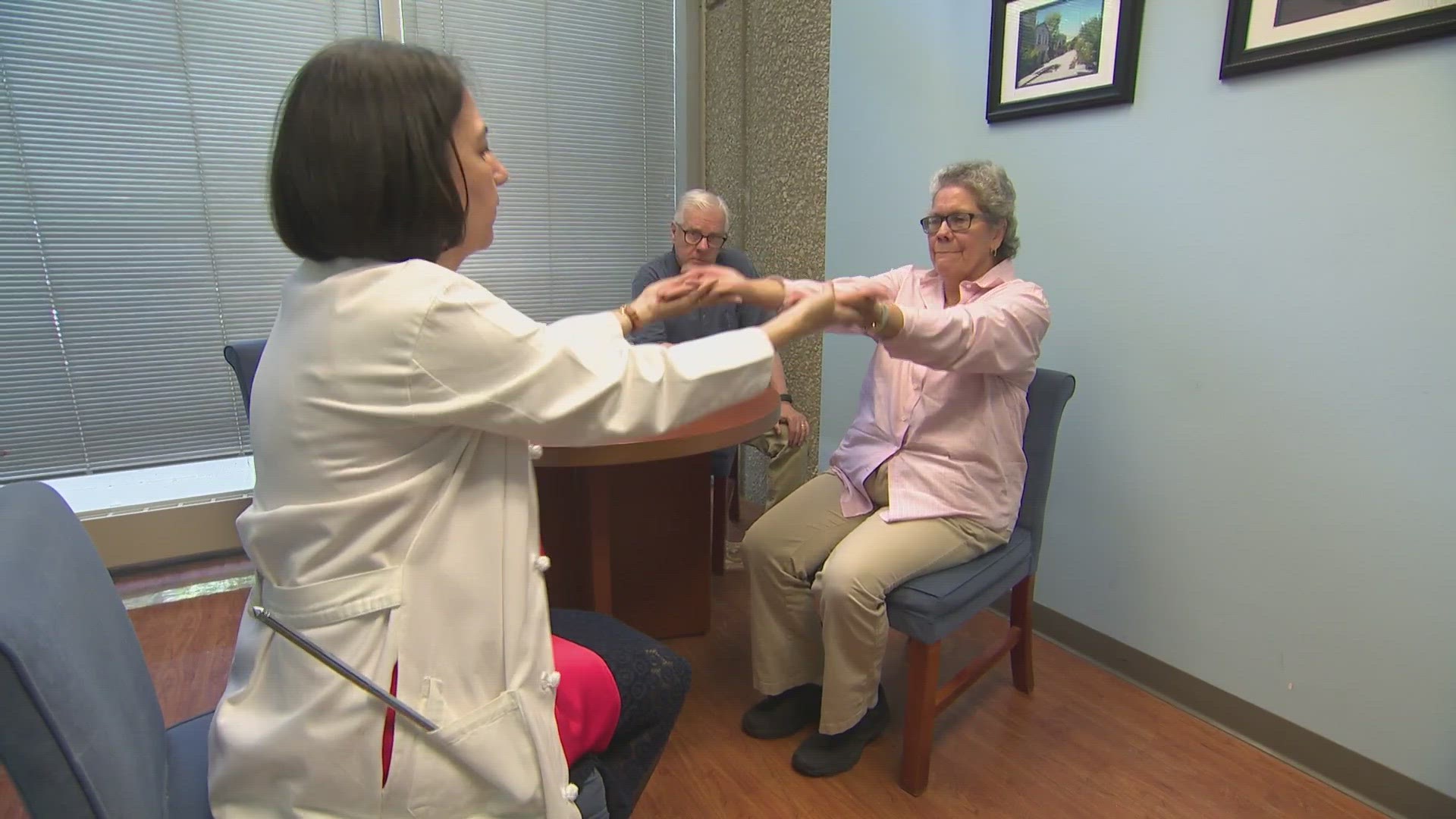ST. LOUIS — According to the Alzheimer's Association, the number of Alzheimer's patients is expected to double by the year 2050.
That's according to a new report released Wednesday from the Alzheimer's Association. It will result in 13 million people living with the disease.
Right now, 120,000 Missourians live with Alzheimer’s disease.
They are cared for by an estimated 220,000 dementia family caregivers across the state, providing 350 million hours of unpaid care valued at $650 billion.
"Typically, we estimate two to three people are really helping to primarily care-give for someone who has Alzheimer's or another dementia,” said Sarah Lovegreen with the Alzheimer's Association Greater Missouri chapter.
Lovegreen said a shortage of health care workers is putting the burden on families to take care of those with Alzheimer’s.
There are racial disparities too. Black caregivers provide more hours of care per week compared to white caregivers.
Here is how the report breaks down the burden on communities of color:
- Black caregivers provide more hours of care per week compared to white caregivers.
- Black male caregivers are 3.3 times more likely to experience financial burdens when compared to Black female and white male and female dementia caregivers.
- Black, Hispanic, and Asian American dementia caregivers indicate greater care demands, less outside help/formal service use and greater depression compared with White caregivers
- Black and Hispanic caregivers noted poorer health prior to becoming a caregiver for a spouse with dementia than those of similar race/background who did not become caregivers.
- Discrimination is also linked with depressive symptoms among Black American dementia caregivers.
"They're providing hours of unpaid care which is actually helping us in some ways because its keeps cost of care down in other ways," said Lovegreen. But those people are also leaving the workplace and they're not able to do some of the other requirements they need to do."
The report estimates more than 1 million additional direct care workers will be needed through 2030.
The new report also found many people with memory concerns are not discussing the issue with their doctor. That is delaying the diagnosis of Alzheimer’s and other dementias, and potential treatment, which is most effective when Alzheimer’s and dementia are in their earliest stages.
Lovegreen said many people believe memory problems are part of the normal aging process or assume their doctors will not have any good treatments.
Primary care doctors may also be dropping the ball and not asking about cognitive issues. Lovegreen said it is a multi-faceted problem.
"Our primary care physicians want to be able to refer to specialists but there's not enough specialists to treat people in a timely way who have memory concerns," she said.
She also said there is a great need for specialists from a wide range of ethnicities.
“Really keeping diversity and inclusion in mind as well, we want to be sure that people with different cultures and ethnic identities are seeing people like them in the medical field so they're more apt to have those conversations," she said.
On a positive note, new treatment advances have generated excitement and hope for people with early-stage Alzheimer's and dementia.
See all the data from the new 2023 Alzheimer's Association Facts and Figures report here.

